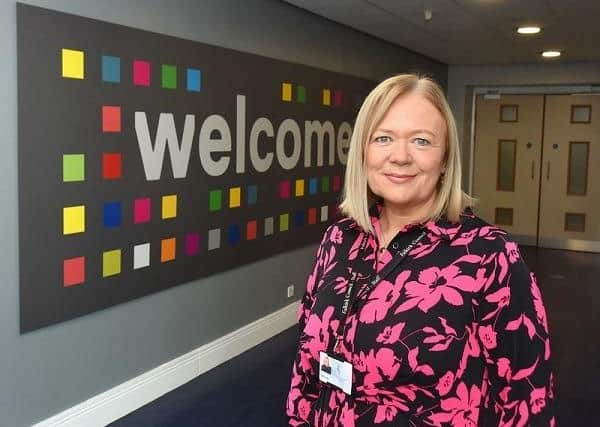Falkirk Council: Shortage of foster carers continues but more children looked after by kinship carers
and live on Freeview channel 276
Falkirk Council’s scrutiny committee heard on Thursday that the target of 15 new foster care placements had been missed, as they increased by just six.
Chief social work officer Sara Lacey said it was “really disappointing” to fall short despite their best efforts and pointed how how there is “definitely is a national shortage of foster carers”. She said Falkirk had made a significant investment in promoting the area as a great place for people to foster, with extensive promotion in the media and social media.
Advertisement
Hide AdAdvertisement
Hide Ad“We’ve had some real success in terms of our current foster carers being really eager to be the voice promoting fostering,” she said.


In the past year, several carers have retired, which has reduced the number of placements considerable. While they will continue to try to recruit new carers, work is also ongoing to help existing carers expand their capacity.
The council also managed to reduce the number of children in care who are in more than one placement within a year for the third year running. This is a key way to ensure that looked after children’s lives are disrupted as little as possible and while the council did not match the Scotland-wide figure, they were pleased to note it is the council’s best performance since local government benchmarking figures started in 2010 to 2011.
The report to councillors noted that Falkirk has also increased the number of kinship carers for children who can no longer live with their parents. This is another key part of the council’s closer to home strategy, which aims to keep children in the Falkirk area, close to friends and family, wherever possible.
Advertisement
Hide AdAdvertisement
Hide AdMs Lacey said kinship care had grown by around two-thirds in recent years and it was a key area for investment. They believe that this is not only better for looked after children but also saves money as external foster care and residential care is very expensive.


Ms Lacey said that they would “absolutely continue” with their efforts to recruit new foster carers.
She said: “We’ve got a much better social media presence, we’ve really invested in our website, we’re trying as many different approaches as we can but it is incredibly challenging and we need to consider what target is reasonable in the current context. Our foster carers and our kinship carers are extremely valuable and I think the council really demonstrates that.”
Last month, we reported that over 60 foster carers had signed a petition calling on Falkirk Council to increase their allowances.
Advertisement
Hide AdAdvertisement
Hide AdThe petition was launched by members of the Independent Workers union of Great Britain (IWGB) whose members say carers are facing extreme difficulties to meet the soaring costs of living whilst fees and allowances remain frozen. To continue providing for the vulnerable children in their care, some have been forced to use their own personal savings to make up for the council shortfall.
At the time a Falkirk Council spokesperson said: “We highly value our foster carers and kinship carers and recognise the impact the cost of living crisis is having on them whilst they care for Falkirk’s children in their own homes. Allowances are currently under review and we hope to be in a position to share the outcome of this with our carers soon.”